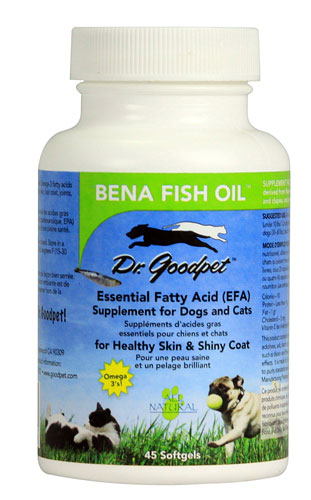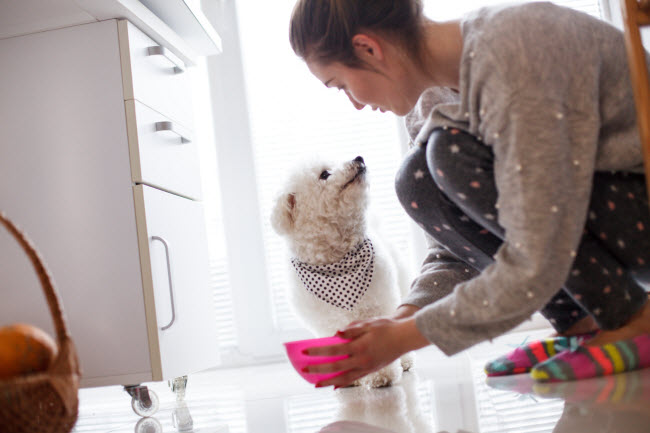Many high-quality, well-tested dog foods are available to keep your four-legged family members safely nourished and healthy. However, many of these foods are expensive; or, they migh not meet your dog’s individual nutrition needs. That’s where add-ins can come in handy. It's easy to instantly up the nutrition of dog food by sprinkling in some healthy ingredients. Here are eight of the best ones.
What to Feed Dogs for a Nutrition Boost
1. Fish oil
Fish oil is rich in omega-3 essential fatty acids that offer a wide-range of benefits, from supporting healthy skin and fur to immune system regulation to fighting inflammation that causes joint and other problems.
To give your dog fish oil, mix a few drops of liquid fish oil into his food. You also can you’re your dog canned sardines or salmon. Stick to one small sardine for small dogs and two to three for larger dogs. And be sure to get the kind packed in water and not oil!
2. Rosemary
Loaded with antioxidants, rosemary is an easy way to provide your pup with a few extra free radical scavengers to protect her cells and overall health. Rosemary also supplies iron, vitamin B6 and calcium. Just sprinkle it on kibble for instant nutrition benefits.
3. Coconut oil
Like you needed another reason to love coconut oil. It’s not only good for humans, dogs benefit from this tropical treasure, too. Coconut oil can help improve the shine of your dog’s coat, clear up skin issue and, fight off microbes and bad bacteria in their mouths, guts and skin. Due to its high caloric content, however, make sure to start small and work your way up to no more than one teaspoon a day.
4. Pumpkin puree
Pumpkin is king when it comes to canine digestive health. No matter if your dog got into the trash or won’t stop eating grass, adding some pumpkin puree to his food is a surefire way to help bring the digestive system back to normal. It’s great source of soluble fiber, helping with both diarrhea and constipation.
5. Frozen veggies
Vegetables are a good source of fiber and vitamins that can help fill in the gaps that may be missing in your dog’s diet. They’re also a great way to add volume to meals without loading down Lucky’s meals with added calories, which is great for dogs with big appetites.
Fresh, cooked or frozen veggies are all fine to feed to your furry friend. Go for frozen peas, green beans and zucchini. Vegetables such as carrots and broccoli are best steamed as they’re tougher on the digestive system. If you find that your dog has a hard time digesting even frozen peas or beans, try steaming those as well.
6. Yogurt
Dogs are exposed to all types of bacteria, especially the ones who lick everyone and everything they come across. Probiotic-rich foods such as yogurt can help supply their digestive tract with plenty of goof bacteria to keep their guts happy and healthy. Yogurt also adds a nice protein-boost to any dog food.
7. Eggs
Eggs deliver high-quality protein along with vitamins and minerals that are great for your pup. They’re relatively high in calories, so if you have a small dog, decrease the amount of food you’re supplying and include about half of an egg. For larger dogs you can use a whole egg. Either hard boiled or scrambled – both are great ways to serve them up!
8. Glucosamine
As your canine companion ages, it’s possible that joint pain or arthritis will become an issue. Supplementing with glucosamine may help decrease inflammation as well as support overall joint health and lubrication. While food sources aren’t always easy to find, glucosamine supplements for dogs are readily available in pill or liquid form.




